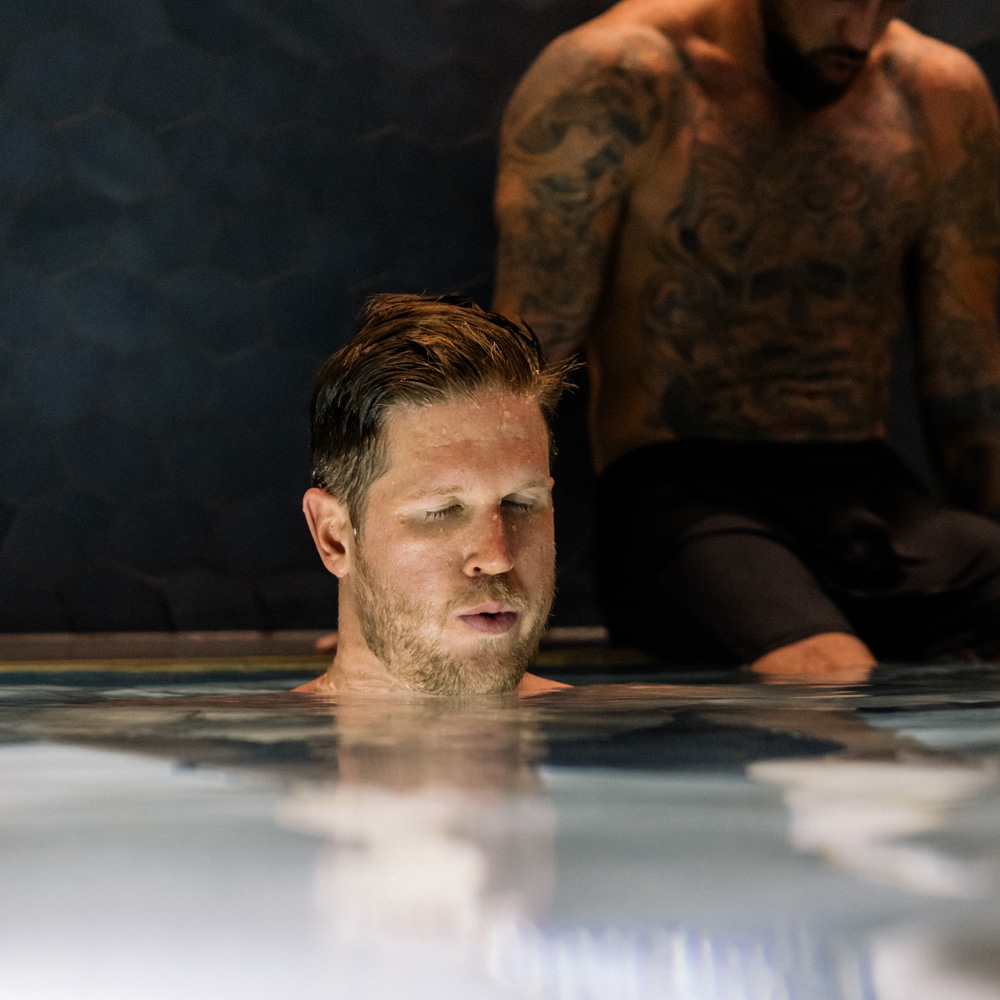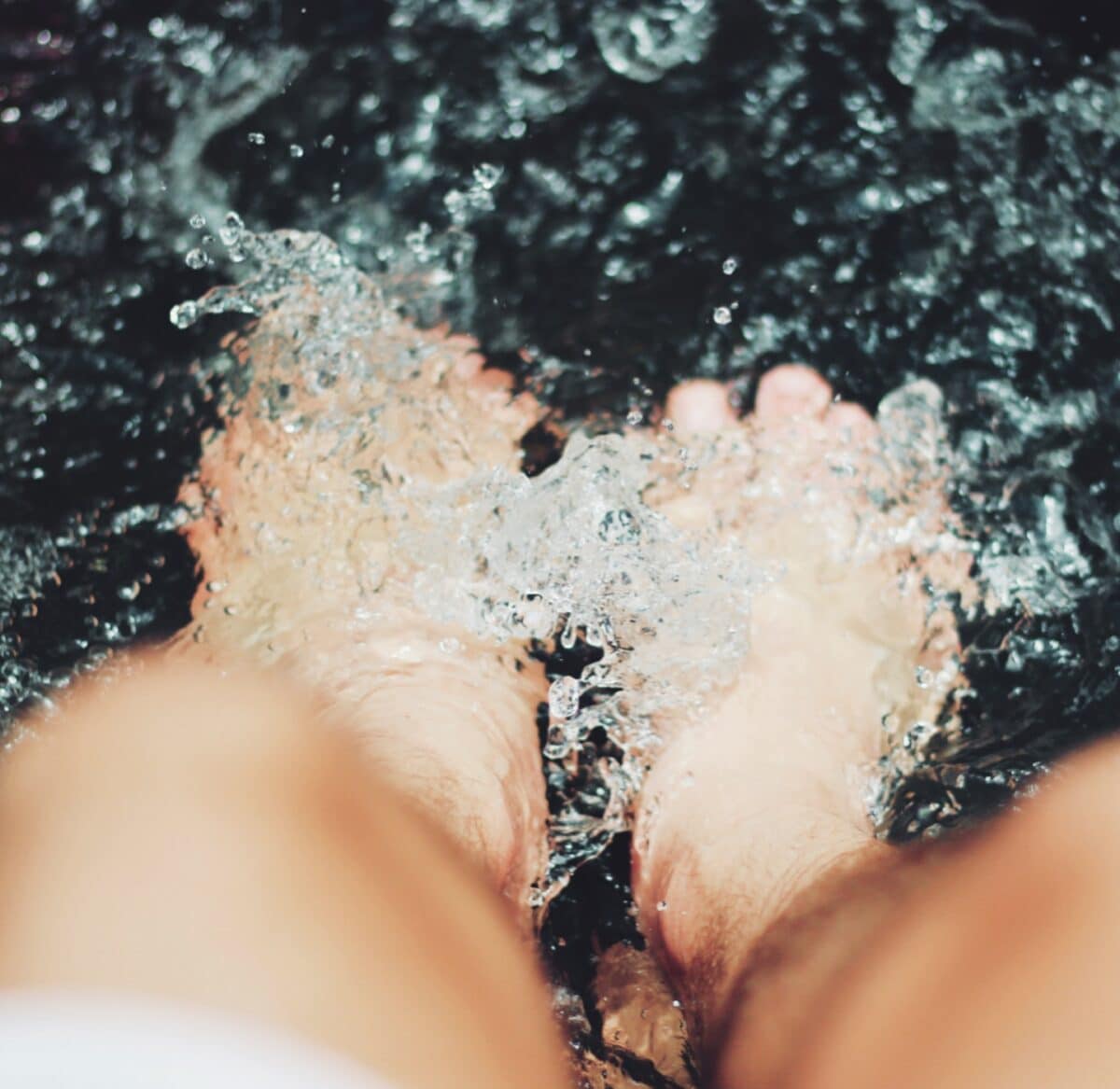
Regular classes at Revivery reduced Mary’s anxiety and helped her form deep connections with others in her community.
Taking a group cold plunge and sauna class wasn’t Mary L.’s* idea.
In fact, the thought of being in an enclosed space with people she didn’t know filled her with anxiety.
However, Mary was willing to try because she needed help.
Mary had been battling anxiety for years. She’d done therapy and taken medication, but still didn’t feel at ease. Her friend—a yoga instructor and a leader of Revivery’s group contrast therapy classes—knew she was struggling and thought a guided cold plunge and sauna class routine could help.
Although she wanted to try a class, Mary’s anxiety prevented her from trying something so far out of her comfort zone.
Finally, after a month of encouragement, Mary agreed to try a session. The week before her first class she couldn’t stop thinking about how much she didn’t want to go. Mary’s friend wouldn’t let her back out, and so when the day came she showed up, apprehensive and unsure.
“I hated the first round,” Mary said about her first time cycling through the sauna then the cold plunge.
“I tried to leave and (my friend) forced me back into the second round. Then I ended up staying for the whole class,” she said.
That first class was in 2021, and now, more than two years later, Mary attends guided sauna and cold plunge classes five or six days a week.
“It’s probably saved my life,” Mary said.

“I’ve struggled with anxiety. And this has been the most therapeutic things I’ve found for myself. At Revivery, I’ve learned tactics to regulate my nervous system that I can take into the real-world. I’m more conscious and self-aware now.”Margan K., Member READ MORE REVIEWS
How a Cold Plunge Routine Affects Mental Health
While most of the scientific evidence surrounding the effect of cold water on mental health comes from small studies or surveys, what researchers have discovered is promising.
A 2021 study found that people who regularly swam in cold winter water reported lower levels of stress and a higher sense of wellbeing. A 2020 study looking at novice open water swimmers in Britain found similar results—participants reported reduced stress and a better overall mood.
While outdoor swimming is not the same as a cold plunge, because of the exercise component and the fact that people are in nature, some scientists believe cold water alone has a positive effect on mental health.
Plunging into ice-cold water causes your body to release stress hormones, which include noradrenaline and cortisol. This is one of the reasons you feel awake and invigorated after a cold plunge. However, unlike a stressful experience that might also trigger the release of stress hormones, research shows that cold plunges can increase dopamine in our brains, which leads to feelings of happiness.
Another theory about why cold water helps our mental health is that it activates the parasympathetic nervous system, which helps the body rest and relax after a stressful experience. A cold water habit might also decrease inflammation. Chronic inflammation can lead to depression and anxiety, among other health problems like insomnia, frequent infections, and gastrointestinal issues.
Whatever the mechanism, most people who establish a cold water immersion habit report improved mental health and a feeling of calm that persists even out of the water.
The Power of Shared Stories
Mary first began struggling with anxiety when she went to college. At the time she didn’t know what was wrong—she thought she might have the flu that wouldn’t go away.
“Then three years later my mom suggested that I go to therapy and that really helped me,” she said.
Mary’s psychiatrist put her on a selective serotonin reuptake inhibitor, and for a while she felt better. Then during the pandemic she stopped going to therapy, and her anxiety increased. She went back to therapy, but didn’t see a noticeable improvement until she began a regular cold plunge and sauna practice.
“I quickly realized that it was really beneficial for my anxiety,” Mary said.
At Revivery, each hour-long cold plunge and sauna session is facilitated by a leader who takes the class through breathwork exercises and also encourages discussion among the group.
In Mary’s first session, the lead asked how everyone was feeling. One of the men in the group said he was feeling anxious.

BOOK YOUR FIRST LOOK
A guided, small‑group session to experience sauna + cold plunge the Revivery way.
TRY REVIVERYThat admission amazed Mary. Up until that point she didn’t know other people felt the way she did. There, in the 200-degree sauna surrounded by people she’d never met, Mary said she was feeling anxious too.
“It felt good to just say that out loud,” she said.
In that moment, sharing her feelings with others, Mary felt less alone than she had in years.
After about a year of going to sauna and cold plunge classes five or six times a week, Mary—in consultation with her doctor—was able to gradually stop taking her medication.
In addition to reducing her anxiety, Revivery has given Mary tools to deal with stressful situations. In each guided session the lead takes the group through breathwork exercises, and this technique can be used in a variety of stressful situations. Mary uses breathwork to calm herself before meetings and to ease her fear of flying.
Cold Water and Connection
Revivery didn’t just give Mary a way to manage her anxiety. It also connected her with a diverse group of people she said she’d never have met if it weren’t for the classes.
“It’s been really cool to branch out and meet people from all different walks of life. I’ve met some amazing people that I consider my best friends now,” she said.
Mary said these connections are deeper than what you might have with people at the gym, because the class spends the hour together sharing the deepest parts of themselves. It often feels like group therapy, Mary said.
For people who are hesitant to try a guided cold plunge and sauna class, Mary’s advice is to tell the lead how you’re feeling in advance. If you’re feeling nervous, they can place you near the door of the sauna so you can easily leave if things get overwhelming.
Another technique is to set a goal of getting through one round of sauna and cold plunge. That’s what Mary’s brother said he was going to do the first time he attended a class.
“After the first round he said, ‘All right, I’m gonna stay for one more round,’” Mary said. Once the third round came around he decided to stay for the whole class.
“Once you go, it feels so good, you want to stay,” she said.
*Name changed at the request of the member, all other details are unchanged.

